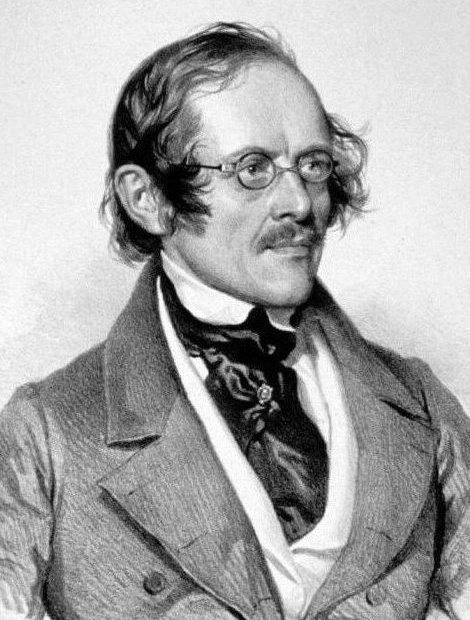Eduard von Bauernfeld (Eduard von Bauernfeld)

Playwright. He helped broaden the scope of 19th Century German-language theatre. His farces and comedies of manners offered thinly-veiled social and political satires of his era, written in an offhand, almost flippant style to get around the censors. The most popular included “The Dear Protocol” (1831), “The Confessions” (1834), “The Middle Class and the Romantics” (1835), “Coming of Age” (1846), “The Categorical Imperative” (1851), “Modern Youth” (1869), and “The Rich Heiress” (1876). All were premiered at Vienna’s Burgtheatre, where he was a house scribe for over 50 years. Bauernfeld was born in Vienna. As a young man he was a close friend of Franz Schubert, who used his translation of a Shakespeare text for the famous song “Who is Sylvia?” (1826). Schubert planned to set his opera libretto “The Count of Gleichen” but left only sketches when he died in 1828. Bauernfeld later wrote some insightful reminiscences of the composer. From 1826 to 1848 he was employed as a civil servant before devoting himself to living by his pen. Apart from plays he produced a novel, “The Freed” (1875), poetry, and political essays of a moderate liberal tone. While the Austrian government was a frequent target of his wit, Bauernfeld managed to be safely funny and was elevated to the nobility by Emperor Franz Joseph. His collected works were published in 12 volumes between 1871 and 1873, though he continued to write prolifically. When he died at 88, Bauernfeld was the last living member of Schubert’s fabled circle. His honor grave at the Zentralfriedhof is near Schubert’s. (bio by: Bobb Edwards)
Born
- January, 13, 1802
Died
- August, 08, 1890
Cemetery
- Zentralfriedhof
- Austria

